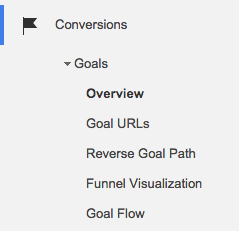As a search marketing consultant I have to admit to a little cynicism when Google makes an announcement. I will admit that I rolled my eyes (a little) when Google announced that they would begin to prefer mobile-friendly websites for mobile web searches.
Now mobile friendly websites are a great idea. It’s something I’ve been recommending for a few years. Unfortunately, with an announcement like this, people started to panic. They did everything they could to convert their website into a mobile-friendly version and avoid MOBILEGEDDON!
Now that we’re living in the End of Days (which started in the week of April 21st, 2015), let’s take a moment and look at the fall-out.
Goodbye Mobile Traffic
When I looked at the data I’m seeing traffic decline for many websites that are not mobile friendly. Some, as large as 50% decline in traffic from search. How did this affect your website? If you have Google Analytics, try this and see for yourself:
- Go to Acquisition > All Traffic > Source/Medium
- Click on Google/Organic (since the algorithm is only with this kind of traffic).
- Change the date range from April 21st to the most recent day of traffic available. Compare this with “Previous Period”
- At this point you’re looking at all Google organic traffic for that period. Change your segment from “All” to “Mobile and Tablet” traffic. We have to remember that Google’s change only affected people searching from their mobile devices.
- Now you see how your mobile traffic before and after Google’s algorithm. Please bear in mind that Google started rolling-out this change on the 21st, but it continued through that week, so the longer-out you can go from the 21st, the better data you’ll have.
What percent of decline are you seeing from Google’s mobile algorithm change?
What if I told you that it really wasn’t that bad?
Mobile Leads- I Never Knew You
If you’ve setup goal tracking in Google Analytics (if not, how do you know if your online marketing efforts are paying off? Get to it!) look at your conversion rate. I bet you’ll find your non-mobile-friendly website has a very poor conversion rate. How do you know if your mobile conversion rate is bad?
- Go to Conversions > Goals > Overview
- Click on the Goal Conversion rate (for the goal you want to measure).
- Change your date range to somewhere around the last 30 days. Don’t compare this data against another time period.
- Display this data using two segments: Desktop and Mobile and Tablet.
- Now you can see how your mobile conversion rate compares with your desktop rate.
In some cases, traffic from mobile (and tablet) visitors doesn’t convert- even once. What does this mean? It means that even if you lost a significant amount of traffic from Google’s update, you didn’t lose any business- that traffic wasn’t becoming new business in the first place!
So, as it turns out, mobilegeddon wasn’t as bad as it as they said.
Now you have an opportunity. What if you could not only gain more traffic from having a mobile friendly website, but get those conversions, as well? That’s why you need to convert your website into a mobile friendly version. Bonus points (and leads) if you get to it before your competitors.
Don’t forget about page speed
Just a few weeks ago Google mentioned that they are going to be incorporating speed loading times into a ranking signal in the same way they are preferring mobile websites. “Oh brother,” I know you’re thinking, “With the mobile-friendly thing being such a bust, why should I bother with this one?”
Don’t be quite that cynical
Your work isn’t done once your website is mobile friendly. Even if page load speed is only a very slight ranking signal for Google, a faster loading website will help your visitors. If your website is very slow your mobile searchers won’t stick around long enough to become a client. The fact is, page load speed times are a very significant factor in conversion rates- and it might be one of the reasons your non-mobile site has an extremely low conversion rate in the first place. If you rushed to convert your website into a mobile-friendly version, you might still need to take this step and make sure people can actually view your website in a reasonable time.
But be a little cynical
When it comes to Google announcements, some people get seduced into the latest thing. We have to remember that there are hundreds of ranking signals and factors that Google uses to decide how to rank a website. Mobile-friendly is one. It looks like page load times might become another. None of these are the sole ranking factor. We need to be a little cynical when Google makes announcements like this or we’ll spend all our time changing the latest, greatest thing rather than paying attention to building a crawlable website with authoritative back links that includes helpful content to our potential customers and make it easy for them to connect with us. No matter what change Google might bring into the algorithm- that will always be the secret sauce.










